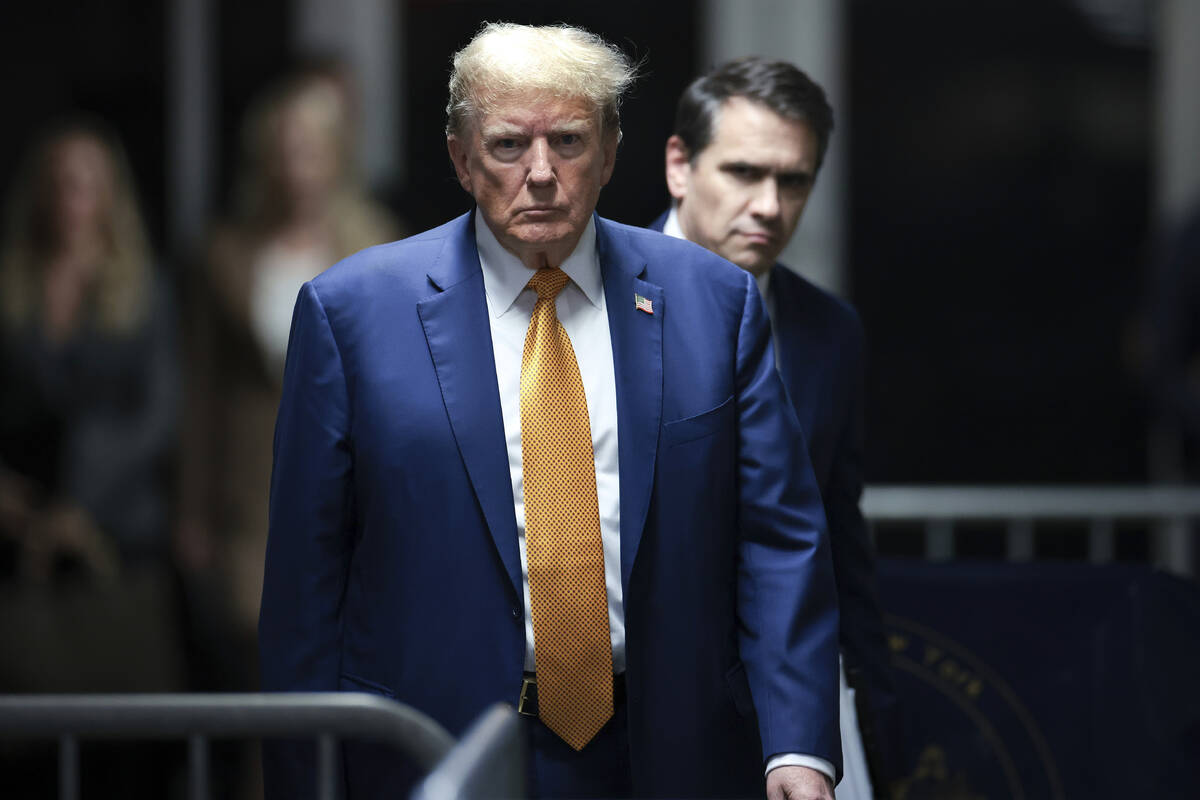RICH LOWRY: The Columbia University push to elect Trump
“Let’s finish what they did in 1968,” a Columbia protester said the other day. In political terms, that would mean electing Donald Trump. The disorder of 1968 — when LBJ declined to run again and Hubert Humphrey, Richard Nixon and George Wallace faced off — played right into the hands of Nixon, who rode his opposition to the riots and campus unrest into the White House.
As Luke Nichter writes in his book on the 1968 campaign, “The Year That Broke Politics,” “The great debate of the campaign, the issue that consistently struck the nation’s nerve, and where there were the greatest differences among the three candidates, was law and order.” That’s not going to be true this year, when other issues loom much larger than the student protests. But if “law and order” is broadly conceived to include the chaos at the border (as well as conflict abroad), it is a major theme of 2024, and has inarguably undermined Joe Biden’s presidency.
In sheer magnitude, the mayhem of 1968 was much larger and more consequential than anything that is happening today. After the Martin Luther King Jr. assassination, as Nichter notes, more than 50,000 federal and National Guard troops were called out “in one of the largest peacetime deployments on American soil in history.” Nixon also went out of his way to position himself as the statesmanlike centrist, which is never Trump’s impulse and rarely his tone.
Nichter explains that Humphrey sought to differentiate himself from Johnson to appeal to liberals, while Wallace ran to Nixon’s right. This ceded the center to Nixon. Nixon’s voice was firm but not harsh, alarmed but not apocalyptic. Of course, Nixon emphasized the theme of “the silent majority.” In a speech in May on CBS Radio, he referred to it as “the silent center,” in other words, “the millions of people in the middle of the American political spectrum who do not demonstrate, who do not picket or protest loudly.”
For a while, Humphrey shifted to his own law-and-order theme. He gave a speech in October calling for $1 billion, as Nichter writes, “to hire more police, speed trials, and upgrade prisons.” It didn’t get him anything. According to Nichter, Humphrey made his gains at the end of the campaign by emphasizing a populist message that won back Wallace voters.
The Democrat got close to Nixon at the end, winning 42.7 percent to the Republican’s 43.4, but was wiped out in the Electoral College.
To what extent will history repeat itself? Again, the violence this year barely compares with 1968, and statesmanship isn’t Trump’s mode. But the stark choice between a candidate who is perceived as strong and emphasizes the importance of order and a president who is perceived as weak and has presided over disorder — both here at home and abroad — obviously works to Trump’s advantage.
In the latest Economist/YouGov survey, 58 percent say Trump has very or somewhat strong leadership qualities, while 64 percent say Biden has very or somewhat weak leadership qualities.
Biden consistently lags behind Trump on the question of who can be trusted to handle the issues of crime and the border, which rate among the top issues of the election.
So, no, the brief takeover of a building at Columbia didn’t equal 1968, but any echo of that annus horribilis helps Trump, with perhaps a homage to Chicago 1968 still to come.
Rich Lowry is on X @RichLowry.






















